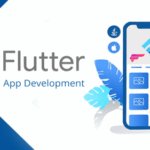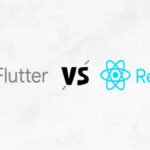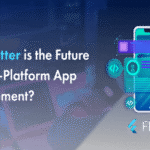Mobile AppHealthcare Mobile App Development: Secure, Scalable, HIPAA-Ready

Table of Contents
As the healthcare industry rapidly digitizes, mobile applications are emerging as vital tools to enhance patient care, streamline clinical workflows, and deliver on-demand medical services. With the rise of digital health ecosystems and patient expectations for remote access to healthcare services, mobile apps are no longer an innovation—they’re a necessity. A well-designed healthcare mobile app can bridge the gap between providers and patients while ensuring robust data privacy, regulatory compliance, and operational scalability.
In Chennai, one of India’s top tech and medical innovation hubs, organizations are increasingly seeking customized mobile solutions that meet both clinical and commercial goals. This blog offers a detailed breakdown of what it takes to build a secure, scalable, and HIPAA-ready healthcare mobile application tailored for the Chennai market and beyond.
Why Mobile Apps Are Essential in Healthcare
- Mobile apps are transforming every stage of the healthcare journey—from discovery and diagnosis to treatment and follow-up. With the growing demand for telemedicine, self-care, and chronic condition management, healthcare providers can no longer rely solely on traditional infrastructure. Mobile apps offer a direct channel for real-time interaction between doctors and patients, reduce unnecessary hospital visits, and streamline administrative tasks like appointment scheduling, billing, and EMR access. For patients, the convenience of managing their health records, tracking medication, and connecting with care providers from the comfort of their home leads to improved satisfaction and outcomes.
Chennai’s Growing Healthcare Tech Ecosystem
Chennai’s reputation as a healthcare capital is now complemented by its rise as a healthtech innovation center. Home to multi-specialty hospitals, medical colleges, diagnostics labs, and digital-first startups, Chennai has created the ideal ecosystem for healthcare mobility solutions to thrive. Partnering with a mobile app development company in Chennai ensures that your application is designed with regional insights—from local language support and compliance nuances to UI/UX expectations of both urban and semi-urban populations. These partnerships bring access to skilled developers, cost-effective delivery models, and domain knowledge in EMR, teleconsultation, e-pharmacy, and wellness services.
Core Features of Healthcare Apps
For a healthcare app to be impactful, it must go beyond the basics. Essential features include robust patient onboarding with KYC or Aadhaar verification, advanced doctor discovery filters (by specialty, ratings, languages spoken), and appointment calendars that sync in real-time. Other must-haves are integrated video calling for telemedicine, e-prescription capabilities, medical record uploads, lab report viewing, and secure in-app payments. Features like biometric authentication, push notifications for medication adherence, and multilingual interfaces make the app more inclusive and functional. These capabilities reduce friction in patient-provider interactions and improve overall health system efficiency.
HIPAA, Security & Compliance Checklist
Security is the backbone of any healthcare platform, especially when dealing with Protected Health Information (PHI). HIPAA compliance isn’t just about ticking boxes—it requires designing every module to prevent unauthorized access and ensure transparency. Your app must include AES-256 encryption, SSL certificates for secure data transmission, role-based access to control who sees what, and logs to track every access event. User consent should be captured with clear disclaimers and stored securely. Infrastructure-wise, deploying on HIPAA-compliant cloud services like AWS or Azure ensures reliability and scale. Apps that follow these protocols not only protect sensitive data but also win patient trust and investor confidence.
Types of Healthcare Apps in Demand
The healthcare app space is highly diversified. Telemedicine platforms facilitate online consultations, reducing the burden on hospitals while improving access in rural areas. Fitness and wellness apps promote preventive care and lifestyle tracking. Pharmacy apps enable users to upload prescriptions, order medications, and get doorstep delivery with dosage alerts. Mental health platforms use chatbots and video therapy to democratize access to psychologists. Disease management apps support diabetes, hypertension, and cardiac care through integrated monitoring tools. Diagnostics apps allow users to book lab tests, track sample pickups, and receive digitized results. These apps cater to both B2C and B2B segments and open up recurring revenue models.
Role of AI in Healthcare Mobile Apps
Artificial Intelligence is reshaping how healthcare apps deliver value. Imagine a chatbot that does triage—asks the patient symptoms, classifies urgency, and books an appropriate slot with the right specialist. AI models can also predict patient behavior, flag possible medication non-adherence, or detect anomalies in heart rate from wearables. AI enables personalization at scale and drives intelligent automation in scheduling, diagnostics, and recordkeeping. To achieve this, it’s crucial to collaborate with an AI development company in Chennai that understands clinical accuracy, patient data ethics, and the nuances of integrating ML models into production environments.
How AI Software Supports Clinical Workflows
The visible app experience is just one layer. AI software in the backend handles the complexity—from processing vitals data in real time to triggering alerts for abnormal trends. For example, a doctor-facing dashboard could display real-time blood sugar trends for 100 patients and alert those needing urgent follow-up. AI can transcribe voice notes into structured EHR records, auto-suggest ICD codes, or summarize case histories. Predictive analytics further assists hospitals in resource planning by forecasting OPD load or medicine stock-outs. These use cases are only possible when working with a trusted AI software development company in Chennai that specializes in integrating scalable, secure, and interoperable systems with cloud and on-premise health infrastructure.
Case Studies from Chennai
Case Study 1 – Confidential (Telehealth Platform)
A leading Chennai-based hospital chain launched a multilingual telehealth app supporting video consultation, doctor search, and e-prescriptions. Built in Flutter with Firebase backend, the app onboarded 50,000 users in three months, reduced call center load by 40%, and doubled consultation revenue.
Case Study 2 – Confidential (Diagnostics Platform)
A mobile-first diagnostics startup developed an app where users could book home sample collection, upload prescriptions, and view results in their health timeline. AI-based reminders improved repeat bookings, contributing to a 45% jump in customer retention.
Case Study 3 – Confidential (Mental Health App)
This platform integrated licensed psychologists with booking and in-app therapy sessions. An AI-powered emotional wellness bot offered guided journaling and CBT techniques. Result: 65% users completed at least three therapy sessions vs the market average of 28%.
Partnering with the Right Mobile App Company
Choosing a development partner is critical—especially when your app deals with human lives and sensitive data. Look for a company with proven experience in healthcare, demonstrated knowledge of standards like HIPAA, HL7, and FHIR, and strong UI/UX capabilities for patient and doctor personas. Ensure they can handle cloud deployments, scalability, and integrations with EMR/EHR systems. They should provide a collaborative product roadmap, testing, documentation, and post-launch support. Transparent communication, agile workflows, and domain expertise are non-negotiable traits in your mobile partner.
Cost & Timeline Estimates
| App Type | Estimated Cost (INR) | Timeline |
|---|---|---|
| Appointment Booking App | ₹5L–₹8L | 6–8 weeks |
| Telehealth Consultation | ₹10L–₹16L+ | 10–14 weeks |
| AI-Driven Health Tracker | ₹18L–₹25L+ | 12–16 weeks |
Additional modules include EMR integration, cloud deployment, multilingual UI, in-app chat, lab sync, and advanced reporting dashboards. The timeline may vary depending on feature complexity, team bandwidth, and regulatory approvals.
Final Thoughts + CTA
The future of healthcare is digital—and mobile apps are central to that transformation. From remote consultations to chronic care, the scope of mobile in health is vast and still evolving. Whether you’re a solo practitioner, diagnostic chain, hospital, or healthtech startup, now is the time to invest in secure, scalable, HIPAA-ready healthcare mobile solutions.
Reach out to a development team that brings domain knowledge, technical excellence, and a compliance-first approach to help you build a medical app that’s as impactful as it is intelligent.
FAQs
1. Is HIPAA required for Indian apps?
While not legally mandated in India, HIPAA compliance is increasingly adopted by Indian healthcare providers targeting global users or institutional clients. It signals credibility and future-readiness.
2. Can I connect the app with hospital databases?
Yes. Apps can sync with EMRs using HL7, FHIR, or custom APIs. A modular backend enables future scalability and integrations.
3. Can the app support multiple languages?
Absolutely. Multilingual support is crucial in Chennai and pan-India to improve usability and inclusivity.
4. Will patients be able to upload prescriptions and test reports?
Yes. You can enable secure media upload features, with access control and encrypted storage.
5. Can AI suggest personalized care tips?
Yes. With proper consent and health data, AI can deliver condition-specific nudges and wellness recommendations.




